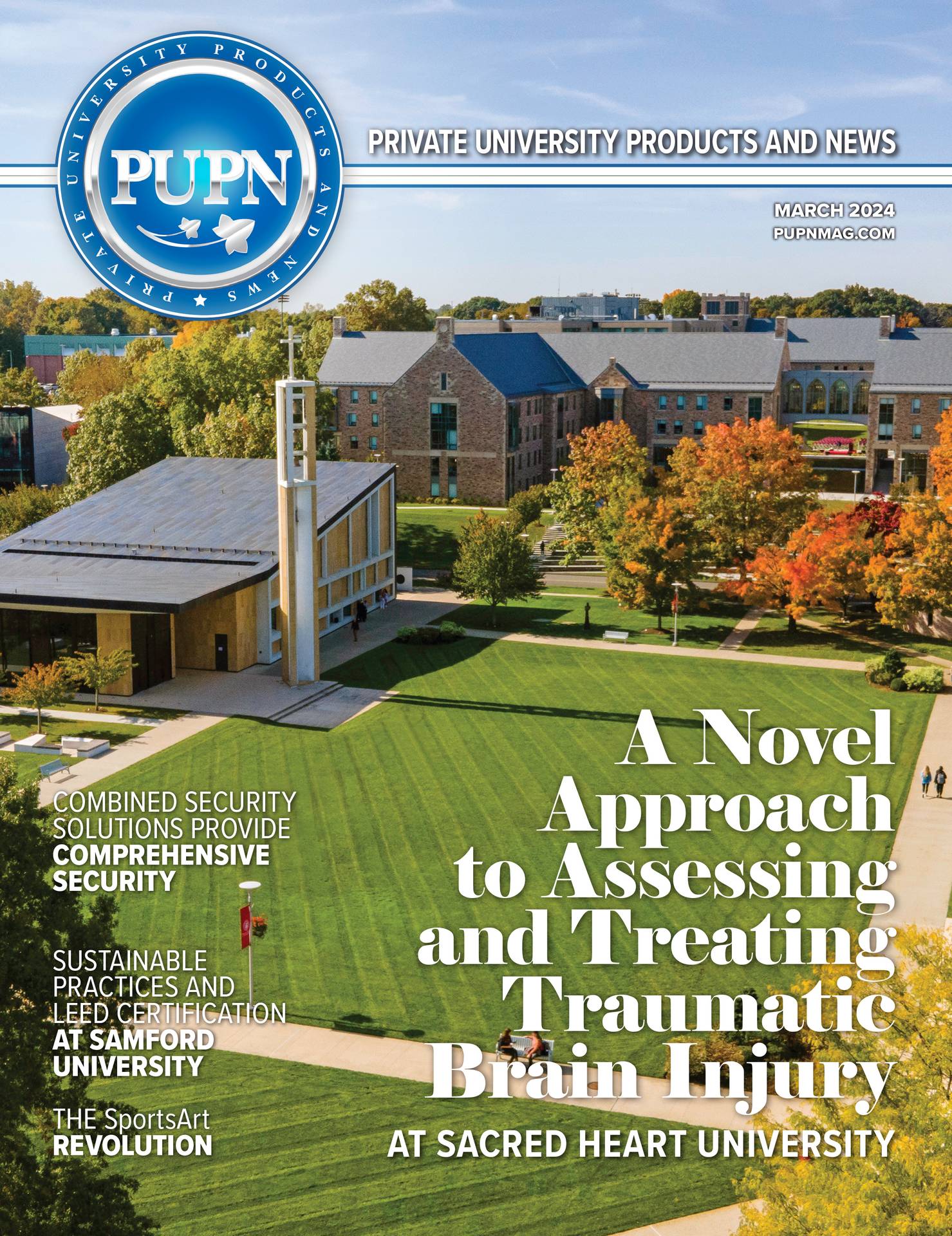Private colleges and universities followed federal and local health guidelines by closing their campuses and shifting to online teaching in order to complete the semester. Fortunately, advances in technology provided a way for faculty and students to continue teaching and learning. Faculty moved their coursework to platforms such as Zoom, Google Meet, Google Chat and others as instructed by their Information Technology departments. Students adapted to new schedules and a different way of learning.
As it became apparent schools would not reopen until after the end of the semester, plans were adapted to present the most important event in a student’s higher education experience—commencement. Commencement celebrates the achievement of earning an academic degree. Clark University describes it as “the highlight of the Clark (University) year, and one of the most momentous celebrations and rites of passage for our graduates, their families and friends.”
Saint Leo University considers commencement a “celebration recognizing years of sacrifice and hard work.” Emory University describes the event as “a time for celebration and reflection—an opportunity to recognize the fulfillment of long-held goals and dreams, the transformational arc of the academic journey and the supportive community that has made it all possible.” All institutions of higher education understand the significance of the activities and the people surrounding commencement.
Finding Other Ways to Celebrate a Milestone
With COVID-19 causing the closure of campuses and the cancellation of campus events, colleges and universities made alternate plans for commencement, and graduating students were asked to be involved in the decision-making process. At Emory University in Atlanta, Georgia, students provided “candid input about the loss that they felt around Commencement” because in-person celebrations were suspended. The Commencement Committee Task Force developed a plan that resulted in online participation in the May 11 ceremony and an option to attend a future on-campus event.
Similarly, Simmons University in Boston, Massachusetts, included students in their decision to conduct a virtual commencement on Zoom and live stream it on their YouTube channel. Simmons created a webpage where friends and families can leave notes for the seniors, and is inviting the class of 2020 to attend the graduation ceremonies for the class of 2021. Parent associations developed graduation party kits, complete with party decorations, music, and discount coupons for school swag. Students were encouraged to post photos and videos in their caps and gowns during their homemade ceremony and after parties. While it was disappointing to not be on campus during such a significant event, digital technology provided a few unexpected perks.
Students graduating from one program could watch their friends in a different program graduate as well due to the way virtual scheduling was planned. Family and friends who might have been unable to travel to campus celebrations could attend the virtual celebration in real time. Time zones seemed non-existent as students and their families and friends across the globe could take part in the virtual graduation experience.
A Video Game Offers an Opportunity
One of the most intriguing efforts taken by students to create an on-campus graduation experience emerged from the video game Minecraft. Minecraft was officially released when most of the 2020 graduates were around the age of 12, and most likely many of them grew up playing what has become the best-selling video game of all time. Minecraft allows for the 1:1 scale building of any structure, therefore is a unique solution for replicating a campus. Users build virtual 3D worlds with blocks representing various materials, such as grass, stones, bricks, trees, and water.
At Massachusetts Institute of Technology (MIT), a discussion between a few students on Busy Beaver Discord server (a private social group) sparked the idea to use Minecraft to build a virtual campus. The project grew from 4 – 5 people creating the campus to a large-scale effort hosted and supported by the Student Information Processing Board. Students have embraced the effort, and the attention to detail has surprised many. One student expressed “being able to walk around campus and see the places that are important to you means a lot, especially when you can do that alongside your friends.”
The project demonstrates “some of the passion and pride that we have in our living communities and spaces” and is “serving as a channel for human interaction for many during a time of uncertainty.” With this technology, colleges and universities in Boston and other cities can create their 3D campuses and connect students in unique way. After returning home in March, students turned to Minecraft to recreate a sense of campus community. One Oberlin College student expressed that “Minecraft has become a salve for many students like myself, and college servers have started to become a place where students can log in to process the sudden loss of an on-campus community.”
The University of Pennsylvania’s server, Penncraft, is planning to hold a virtual “speedrunning” competition as an effort to replicate the Penn Relays, the oldest track and field competition in the country, which was cancelled due to the virus. Even small campus groups, such as Bowdoin College’s ultimate Frisbee team, are using Minecraft to stay connected and feel some sense of the campus community. Boston University’s gaming club had begun MinecraftBU before the pandemic. The club’s media chair began to notice the school’s architecture during summer classes, and set up MinecraftBU for the casual gamer.
After COVID-19 forced school closures, two BU computer science seniors heard a story about Japanese high schoolers using Minecraft to hold a virtual graduation. They decided to create “Quaranteen University” and the world was added to BU’s server. Using social media, Class of 2020 students from around the world were invited to sign up and participate in a virtual graduation. More than 1,400 students from over 400 colleges and universities around the world “walked the stage” in the May 22 ceremony, a feat that would be next to impossible in person.
A Temporary Solution, Never a Replacement
As amazing as today’s technology is, we all know it will never replace face-to-face interaction. Private colleges and universities deeply understand how their campus exists as a community, and how important that community is for each student, family, faculty and staff member.
Holding virtual graduations via YouTube and Zoom and the creation of virtual campuses alleviated some of the loss felt by graduates. Hosting an on-campus commencement will happen again soon, and each campus will soon again be called home.










